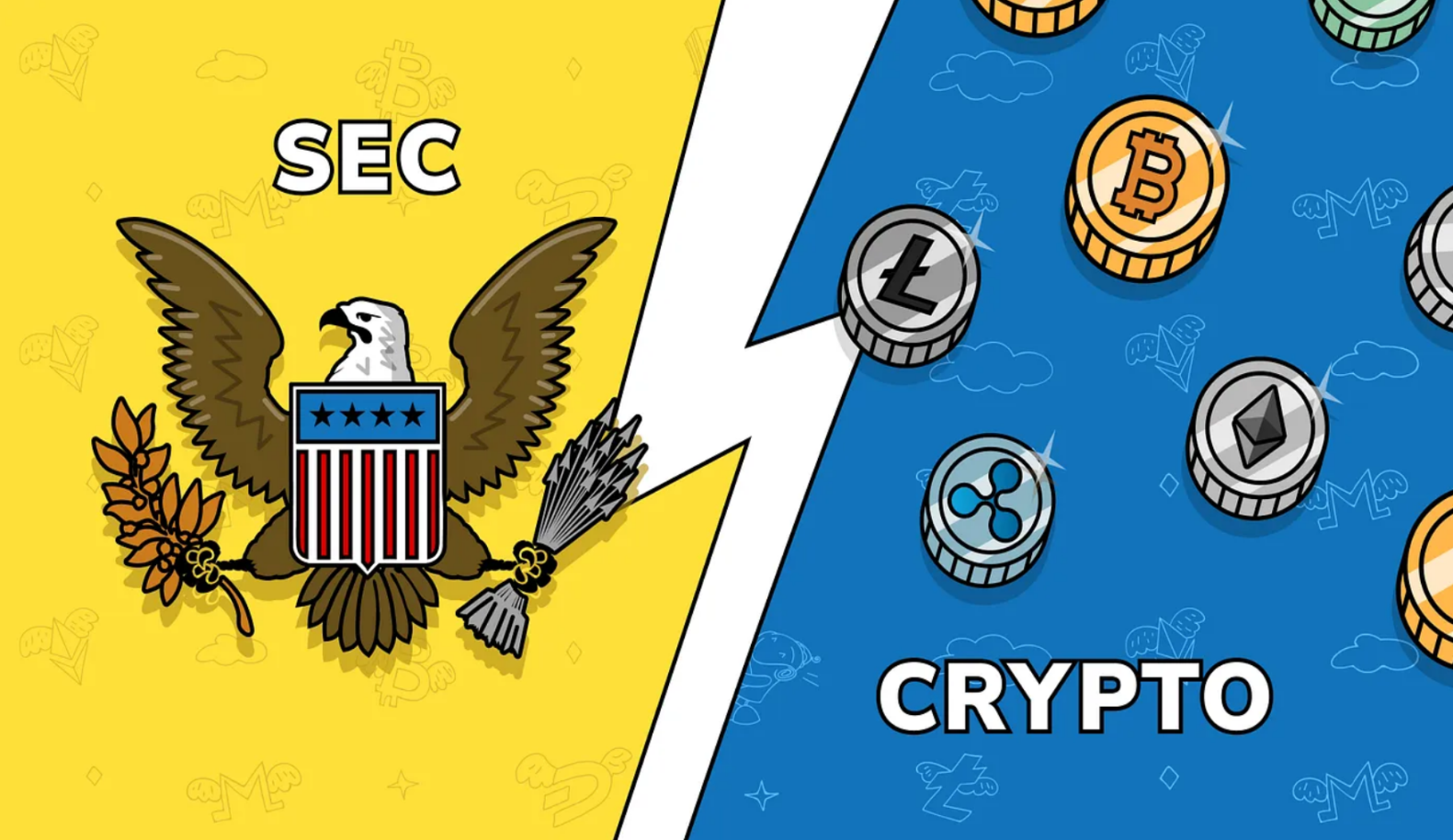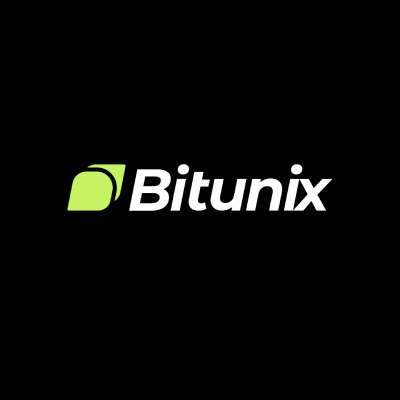原作者: Eterna Capital
原文翻译:白话区块链

The recent news that the U.S. Securities and Exchange Commission issued a Wells Notice (a prelude to formal charges) to the popular NFT 市场 OpenSea adds a new chapter to the legal saga that has plagued the blockchain industry for years.
As we all know, the SEC’s historical position has been that “everything except Bitcoin is a security” — including, according to the notice to OpenSea, NFTs. The debate over whether crypto assets are securities or commodities is crucial: it determines whether the SEC or the CTFC is responsible for regulation. At its core, it is a judicial exercise in understanding what can be considered a “security” as defined in 1946: as such, it is difficult to apply to modern technologies such as cryptocurrencies. The resulting uncertainty and regulatory incoherence has been a major cap on the growth of the crypto industry, as it has slowed adoption, RD, funding, and more.
Careful investors have noted that recent judicial developments suggest that the SEC has failed to convince the courts—and that its chances of succeeding by pursuing further litigation are waning.
1. SEC v. CONSENSYS
1) After ETH 2.0
In June 2024, the U.S. Securities and Exchange Commission (SEC) dropped its investigation into Consensys over Ethereum 2.0 (the blockchain’s transition to proof of stake). According to Consensys’ own statement, “this means the SEC will not bring charges that ETH sales were securities transactions.” This is certainly good news—
But savvy observers prefer to wait for the SEC to announce the results of its investigation into Consensys’ ETH 2.0 transactions and Ripple.
Today, we have reason to be optimistic about these aspects.
2) Before ETH 2.0
The SEC could still investigate ConsenSys’ Ethereum transactions before Ethereum transitions to proof-of-stake (i.e., the proof-of-work era). For investors, what’s worrisome may not be the lawsuit itself, but the content of the lawsuit: The SEC’s lawsuit against ConsenSys’ proof-of-work activities may contain details that worry ETH investors, namely whether these details can be considered securities.
Fortunately, such lawsuits are becoming less and less likely to occur for two reasons:
-
Cryptocurrency has become a polarizing, politicized topic that neither presidential candidate is taking lightly;
-
The approval of a spot Ethereum ETF could be seen as the final conclusion to the “securities vs. commodities” debate.
2. SEC v. RIPPLE
1) Subtle judgment
In August 2024, Judge Torres issued a landmark ruling that Ripples sale of its token (XRP) to institutional investors constituted an unregistered securities offering. Although this resulted in a $125 million civil penalty, the ruling was considered a success given that the fine was less than the $2.5 billion requested by the SEC.
Additionally, the court ruled that secondary sales of XRP on trading platforms were not securities transactions, which was seen as a victory for Ripple and all cryptocurrencies.
However, it was a Pyrrhic victory: Judge Torres’ ruling acknowledged that XRP could be considered a security in certain circumstances — but it was not a uniform security across all transactions. This highlights the complexity of applying traditional (i.e., “unreformed”) securities laws to cryptocurrencies and allows the SEC to take action in different situations.
2) Legal implications
Is the case over? Probably not. Both parties have until October 6 to appeal. Ripple may take the “win” and not appeal. The SEC, in contrast, may appeal (in fact, it attempted to appeal before the trial was over, in August 2023 — unsurprisingly, Judge Torres denied the appeal). While it’s likely that the appellate court will uphold Judge Torres’ unorthodox ruling, there’s no guarantee that it will.
Binding precedent? Contrary to what is often misrepresented in the media, it is important to note that this ruling is not binding (unless approved by the Court of Appeal). On the other hand, it is also important to note that the momentum is clearly positive: in fact, other judges have cited SEC v Ripple in other cases (for example, the Ripple ruling was cited in favor of the defendant in SEC v BN, in a case involving BNB 代币s, July 2024).
What about other altcoins? Even if the Ripple case ends up as a binding precedent, it would still leave most other altcoins affected: XRP is, in fact, an exception, having never conducted an ICO and its consensus is not based on proof of stake.
3. SEC’s strategic shift
The Consensys and Ripple cases can be viewed as significant challenges to the SEC’s enforcement strategy, particularly in its approach to seeking broad penalties and enforcing compliance in the cryptocurrency space.
1) Political support
Both cases come against a backdrop of increasing political scrutiny of the SEC’s regulatory stance on cryptocurrencies. Experts often overlook the fact that the SEC is an independent regulator that is supposedly immune to political influence. Nonetheless, fueled by the election, we saw an unusually bipartisan push in Congress to limit the SEC’s power and provide clearer regulatory guidelines.
Even prominent Democrats like Pelosi and Schumer have parted ways with the Biden administration, supporting legislation to bring regulatory clarity to the cryptocurrency industry and reduce the SEC’s broad enforcement discretion. Meanwhile, Trump has criticized the current administration’s handling of the SEC and even hinted at firing Gary Gensler if re-elected — even though the U.S. president does not have the power to fire the SEC chairman.
2) A series of legal setbacks
The SEC has faced significant legal challenges to its regulatory actions in the cryptocurrency space. In fact, shortly after the Consensys and Ripple cases, an appeals court ruled that the SEC’s rejection of Grayscale’s spot Bitcoin ETF application was “arbitrary and capricious,” raising questions about the agency’s decision-making process. The SEC faced public scrutiny after it dropped charges against Ripple’s co-founder. Weeks later, a Utah court reprimanded it for “egregious abuse of power” in a case involving another cryptocurrency project. The SEC appears to be facing similar challenges in its case against Coinbase.
These events, coupled with the SEC’s eventual and reluctant approval of BTC and ETH spot ETFs, indicate a shift in the SEC’s approach.
4. Conclusion: Turning point?
The Consensys and Ripple cases are far from decisive victories, but they mark a turning point in the battle between the SEC and cryptocurrencies. They highlight the need for clear legislation to lay the foundation for case law to develop: given the nascent stage of the industry, reliance on case-by-case court decisions will hinder the long-term development of cryptocurrencies.
While the SEC may consider an appeal, and other cases are still pending, the emerging trend favors the technology. It’s a result of judicial developments, the politicization of the topic, and the undisputed success (not just financial) of physical ETFs.
In this context, even if the SEC subsequently issues notice and files a lawsuit against OpenSea, one could chalk it up to “dead air.” Uncertainty is the only constant regardless of the outcome of the November election, but institutional investors can now reasonably expect the judicial developments contemplated here to finally deliver the regulatory clarity they have been waiting for for years.
This article is sourced from the internet: The SEC’s fight with cryptocurrencies: The end of the dispute, or the beginning of a new one?
Original author: Weilin, PANews On September 25, local time, U.S. Vice President Harris said in a speech at the Pittsburgh Economic Club that the United States will recommit to global leadership in the technology that will determine the next century, maintaining a leading position in artificial intelligence and quantum computing, blockchain and other emerging technologies. In addition, she mentioned digital assets again in her 80-page economic plan published on her official website. Three days ago, Harris spoke at a Wall Street fundraiser in New York City, breaking her usual silence and saying she would encourage innovative technologies like artificial intelligence and digital assets while protecting consumers and investors. The crypto community has mixed reactions to Harriss first mention of digital assets after breaking her silence, with some believing that her…







